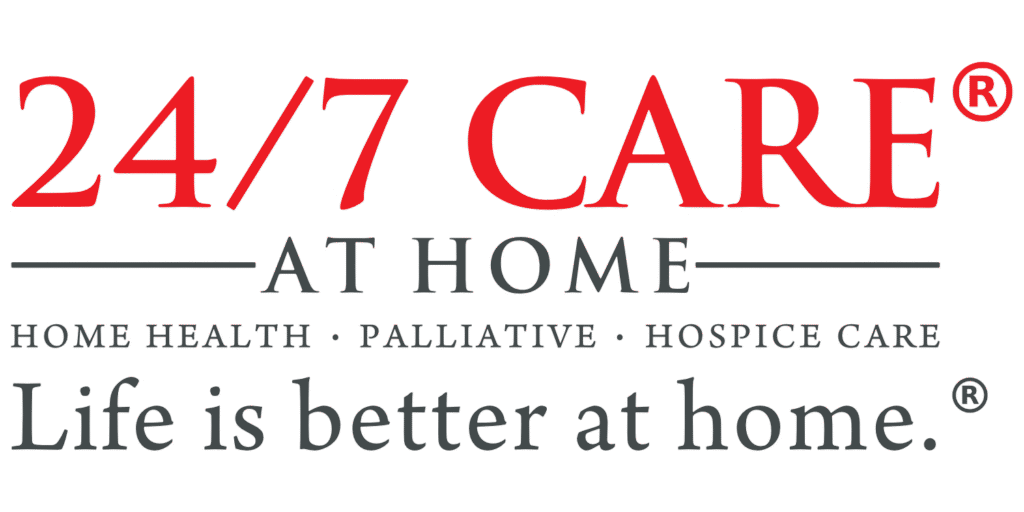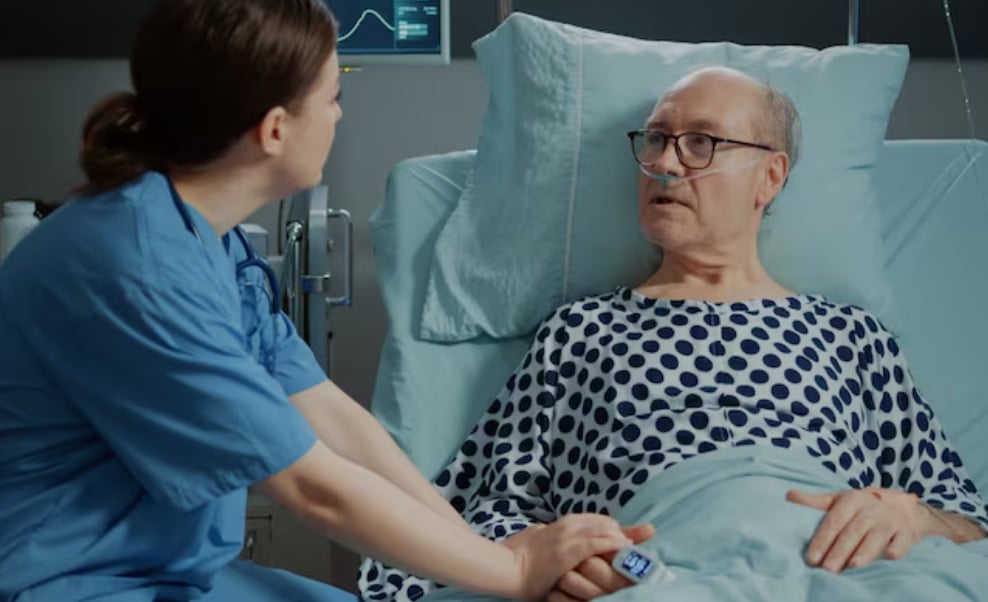Is It Just Aging or High Blood Pressure? Warning Signs in Older Adults
As we care for aging parents or loved ones, it’s easy to attribute certain health changes, like fatigue or forgetfulness, to the normal aging process. But sometimes, these subtle shifts may be signs of something more serious: high blood pressure in seniors.
Hypertension, or high blood pressure, is common among older adults. It’s known as the “silent killer” for a reason: many people don’t experience obvious symptoms until serious damage has been done to the heart, brain, or kidneys.
Why High Blood Pressure in Seniors Deserves Special Attention
About two out of three adults aged 60 or older have high blood pressure. And while it may not always cause noticeable symptoms, uncontrolled hypertension in the elderly increases the risk of:
- Heart attacks
- Stroke
- Kidney damage
- Vision loss
- Cognitive decline
Age-related changes in blood vessels make seniors more vulnerable to elevated blood pressure, even if they’ve never had problems in the past.
Common Signs of High Blood Pressure in Older Adults
High blood pressure doesn’t always come with flashing warning lights. But certain physical and behavioral changes may be signs it’s time to pay closer attention:
Subtle Symptoms to Watch For
- Frequent headaches or neck pain
- Fatigue or confusion
- Dizziness or balance issues
- Blurred or double vision
- Chest pain or shortness of breath
- Irregular heartbeat
- Increased forgetfulness or “brain fog”
Symptoms may be especially subtle in seniors, and can easily be mistaken for normal aging or medication side effects.
Why It’s Often Missed in Seniors
Many caregivers assume slowed movement, confusion, or low energy is just a part of getting older. But in some cases, these may actually be signs of high blood pressure, especially when they appear suddenly or worsen over time.
Key insight: High blood pressure often develops gradually and without obvious signs, which is why routine blood pressure monitoring is crucial for older adults.
How to Help: Managing Blood Pressure at Home
Whether your loved one lives independently or receives in-home support, there are several effective ways to manage blood pressure at home:
🏡 Practical Home Care Tips
- Monitor regularly: Use an easy-to-read home blood pressure monitor and track readings over time.
- Encourage a heart-healthy diet: Focus on low-sodium foods, leafy greens, whole grains, and lean proteins.
- Support physical activity: Gentle daily movement (like walking or stretching) helps improve circulation.
- Manage medications: Stay on top of prescribed treatments and report any side effects to a doctor.
- Reduce stress: Try calming routines like music, prayer, or quiet conversation.
- Limit alcohol and caffeine: These can raise blood pressure, especially in sensitive individuals.
- Ensure good sleep hygiene: Poor sleep is linked to worsening hypertension in the elderly.
When to Consider Home Health or Hospice Support
If high blood pressure is causing frequent symptoms, impacting quality of life, or leading to hospital visits, home care for blood pressure may provide comfort and stability.
Home Health Care Can Help With:
- Monitoring blood pressure trends
- Administering medications correctly
- Identifying concerning changes early
- Coordinating with physicians
- Providing caregiver education and peace of mind
For seniors in advanced stages of chronic illness, hospice care may also support comfort-focused care while ensuring dignity and respect.
You’re Not Alone in This
Caring for a loved one with high blood pressure in later life can feel overwhelming, but support is available. With the right knowledge, resources, and compassionate care team, you can help your loved one maintain stability and peace of mind at home.
Need Help Managing Blood Pressure at Home?
At 24/7 Care at Home, we specialize in supporting families and seniors through every stage of care. From home health nurses to hospice professionals, our team is here to guide you, monitor your loved one’s well-being, and provide the tools you need for success.
Contact us today to learn how we can help your loved one stay safe and supported at home.
Vietnamese
Chỉ là lão hóa hay là tăng huyết áp? Những dấu hiệu cảnh báo ở người cao tuổi
Khi chăm sóc cha mẹ hoặc người thân lớn tuổi, chúng ta dễ cho rằng những thay đổi như mệt mỏi hay hay quên chỉ là một phần tự nhiên của quá trình lão hóa. Tuy nhiên, đôi khi các thay đổi tinh tế này lại là dấu hiệu của một vấn đề nghiêm trọng hơn: tăng huyết áp ở người cao tuổi.
Tăng huyết áp rất phổ biến ở người lớn tuổi. Bệnh được gọi là “kẻ giết người thầm lặng” vì nhiều người không có triệu chứng rõ ràng cho đến khi tim, não hoặc thận đã bị tổn thương đáng kể.
Vì sao tăng huyết áp ở người cao tuổi cần được quan tâm đặc biệt
Khoảng 2/3 người từ 60 tuổi trở lên bị tăng huyết áp. Dù không phải lúc nào cũng có triệu chứng, tăng huyết áp không kiểm soát làm tăng nguy cơ:
- Nhồi máu cơ tim
- Đột quỵ
- Tổn thương thận
- Suy giảm thị lực
- Sa sút nhận thức
Sự thay đổi của mạch máu theo tuổi khiến người cao tuổi dễ bị tăng huyết áp, ngay cả khi trước đây chưa từng gặp vấn đề này.
Những dấu hiệu thường gặp của tăng huyết áp ở người cao tuổi
Tăng huyết áp hiếm khi “cảnh báo rầm rộ”. Tuy vậy, một số thay đổi về thể chất và hành vi có thể là tín hiệu cần lưu ý:
Những triệu chứng kín đáo cần theo dõi
- Đau đầu hoặc đau cổ tái diễn
- Mệt mỏi hoặc lú lẫn
- Chóng mặt, mất thăng bằng
- Nhìn mờ hoặc nhìn đôi
- Đau ngực hoặc khó thở
- Nhịp tim không đều
- Hay quên hơn hoặc “mơ hồ” tinh thần
Ở người cao tuổi, triệu chứng thường rất kín đáo và dễ bị nhầm với lão hóa bình thường hoặc tác dụng phụ của thuốc.
Vì sao bệnh thường bị bỏ sót ở người cao tuổi
Nhiều người chăm sóc cho rằng chậm chạp, lú lẫn hoặc thiếu năng lượng chỉ là do tuổi tác. Tuy nhiên, đôi khi đó lại là dấu hiệu của tăng huyết áp, nhất là khi xuất hiện đột ngột hoặc nặng dần theo thời gian.
Điểm mấu chốt: Tăng huyết áp thường tiến triển âm thầm, vì vậy đo huyết áp định kỳ là điều rất quan trọng đối với người cao tuổi.
Làm gì để hỗ trợ: Quản lý huyết áp tại nhà
Dù người thân còn tự lập hay đã có hỗ trợ tại nhà, bạn có thể áp dụng một số cách hiệu quả sau để kiểm soát huyết áp tại nhà:
Mẹo chăm sóc thực tế tại nhà
- Theo dõi đều đặn: Dùng máy đo huyết áp tại nhà dễ đọc và ghi lại kết quả theo thời gian.
- Khuyến khích chế độ ăn tốt cho tim: Ưu tiên thực phẩm ít muối, rau lá xanh, ngũ cốc nguyên hạt và đạm nạc.
- Hỗ trợ vận động: Đi bộ nhẹ nhàng hoặc kéo giãn mỗi ngày giúp cải thiện tuần hoàn.
- Quản lý thuốc: Dùng đúng theo toa và báo bác sĩ nếu có tác dụng phụ.
- Giảm căng thẳng: Duy trì thói quen thư giãn như nghe nhạc, cầu nguyện hoặc trò chuyện yên tĩnh.
- Hạn chế rượu và caffeine: Có thể làm tăng huyết áp, nhất là ở người nhạy cảm.
- Giữ vệ sinh giấc ngủ tốt: Ngủ kém liên quan đến tăng huyết áp nặng hơn ở người cao tuổi.
Khi nào nên cân nhắc chăm sóc sức khỏe tại nhà hoặc hospice
Nếu tăng huyết áp gây triệu chứng thường xuyên, ảnh hưởng chất lượng sống hoặc phải nhập viện nhiều, chăm sóc tại nhà có thể mang lại sự ổn định và dễ chịu hơn.
Chăm sóc sức khỏe tại nhà có thể hỗ trợ:
- Theo dõi xu hướng huyết áp
- Dùng thuốc đúng cách
- Phát hiện sớm dấu hiệu đáng lo
- Phối hợp với bác sĩ điều trị
- Hướng dẫn người chăm sóc và mang lại sự yên tâm
Với người cao tuổi ở giai đoạn bệnh mạn tính tiến triển, chăm sóc hospice (chăm sóc giảm nhẹ cuối đời) giúp tập trung vào sự thoải mái, vẫn đảm bảo phẩm giá và sự tôn trọng.
Bạn không đơn độc
Chăm sóc người thân bị tăng huyết áp ở tuổi xế chiều có thể khiến bạn quá tải, nhưng luôn có sự hỗ trợ. Với kiến thức phù hợp, nguồn lực sẵn có và đội ngũ giàu lòng trắc ẩn, bạn có thể giúp người thân giữ được sự ổn định và yên tâm ngay tại nhà.
Cần hỗ trợ quản lý huyết áp tại nhà?
Tại 24/7 Care at Home, chúng tôi đồng hành cùng gia đình và người cao tuổi ở mọi giai đoạn chăm sóc. Từ điều dưỡng tại nhà đến đội ngũ hospice, chúng tôi sẵn sàng hướng dẫn, theo dõi sức khỏe và cung cấp những công cụ bạn cần để chăm sóc hiệu quả.
Hãy liên hệ với chúng tôi hôm nay để tìm hiểu cách hỗ trợ người thân của bạn an toàn và được chăm sóc tốt ngay tại nhà.
Frequently Asked Questions
What is palliative care in Los Angeles County?
Palliative care is specialized support to manage symptoms and improve quality of life for those with serious illnesses. 24/7 Care at Home provides in-home palliative care in Los Angeles County, serving areas like Long Beach and Torrance.
Who can benefit from in-home palliative care?
Anyone with a serious illness, such as cancer, COPD, or heart disease, can benefit from palliative care, regardless of their prognosis. 24/7 Care at Home tailors care for patients in Pasadena, Santa Monica, and beyond.
Is palliative care covered by insurance?
Many palliative care services are covered by Medicare, Medicaid, or private insurance. 24/7 Care at Home helps Los Angeles County families navigate coverage to ensure affordable care. Contact us to learn more.






